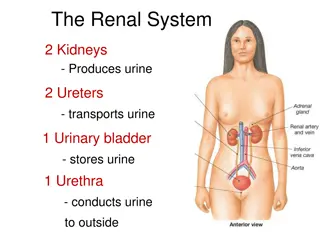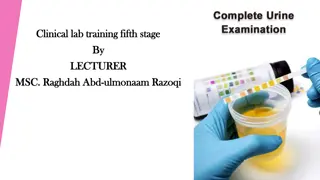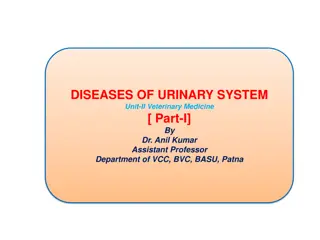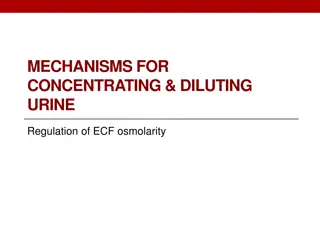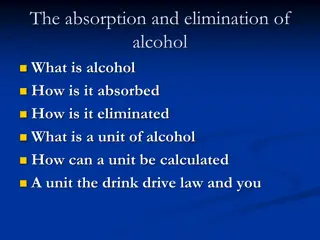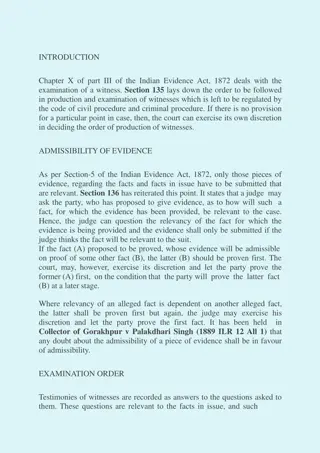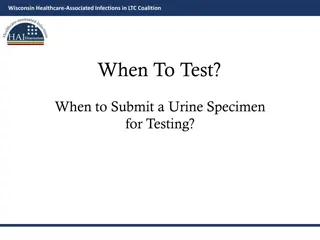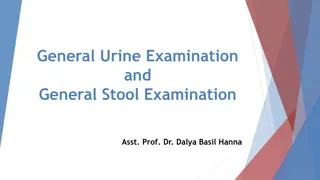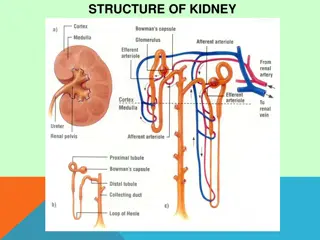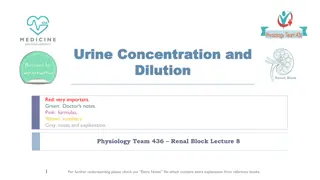Understanding General Urine Examination
General Urine Examination involves analyzing waste products, collection of urine specimens, factors affecting urine amount, preservation methods, physical examination characteristics like color and transparency, specific gravity, odor, and chemical properties including pH, protein, glucose levels. It aims to assess hydration levels, kidney function, and detect potential health issues such as diabetes or kidney disease.
Download Presentation

Please find below an Image/Link to download the presentation.
The content on the website is provided AS IS for your information and personal use only. It may not be sold, licensed, or shared on other websites without obtaining consent from the author. Download presentation by click this link. If you encounter any issues during the download, it is possible that the publisher has removed the file from their server.
E N D
Presentation Transcript
Waste products: Organic: Uric acid Creatinine Urea Inorganic: Sulphates Phosphates Chloride Ammonia
Collection of urine specimen Random urine specimen First morning urine specimen 24-hour urine specimen
Factors affect amount of urine: Normal daily urine output is 800-2000 ml Amount of fluid intake Water lost in perspiration, respiration and bowel activity Diarrhea Daytime urine output is two to four times greater than nighttime output.
Preservation of urine specimen Refrigeration Addition of preservatives: Hydrochloric acid Boric acid Glacial acetic acid formaldehyde
Physical examination: Color: Straw, pale yellow, light yellow, yellow, dark yellow and amber.
Transparensy: Clear, hazy, cloudy, turbid and milky.
Specific gravity: Normal urine specific gravity is 1.003-1.035 Odor: Normal urine has inoffensive odor Volume: Fluid intake, sodium and urea excreted, perspiration, respiration cardiovascular and renal function.
pH: Normal urine pH is 4.6-8.0 Affected by acidosis and alkalosis. Protein: Normal urine contain no proteins (albumin) If present it is called proteinuria Glucose: Normal urine contain no glucose If present it is called glucosuria (diabetes)
Ketones: Normal urine contain no ketones. If present it is called ketonuria Urobilinogen: Normal urine contain low concentration of it. Bilirubin: It is not present in normal urine.



